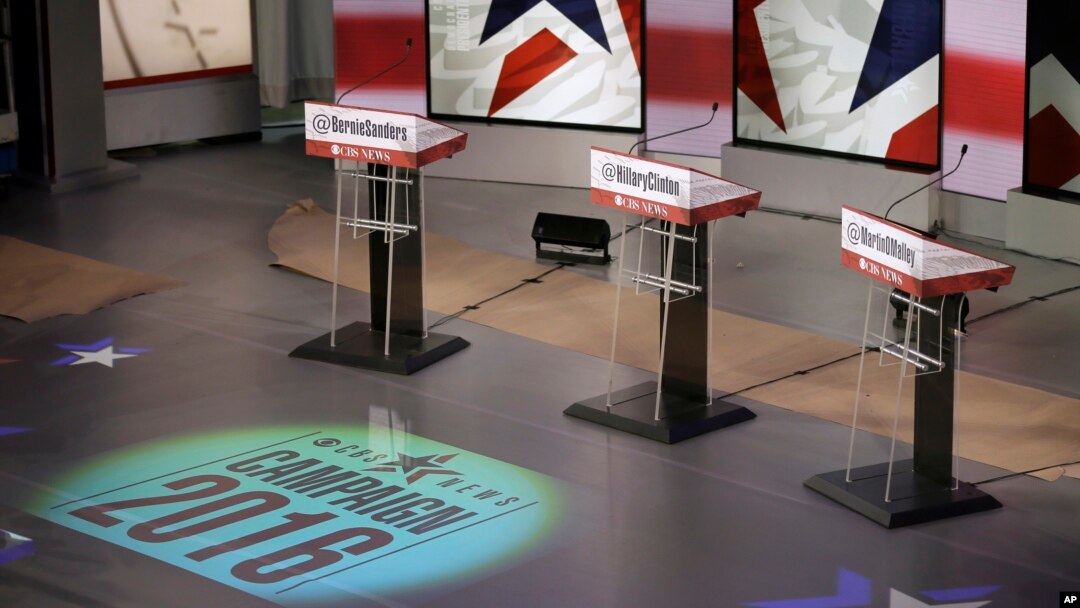Democratic presidential contenders are facing off in a debate expected to focus largely on foreign policy and national security issues, coming a day after deadly terrorist attacks in Paris, France.
The debate, being held in the early presidential nominating state of Iowa, includes former Secretary of State Hillary Clinton, Vermont Senator Bernie Sanders, and ex-Maryland Governor Martin O'Malley.
The forum began with a moment of silence for the 129 people killed and hundreds injured in the Paris gun and bomb attacks, which have been claimed by the Islamic State extremist group.
CBS Executive Editor Steve Capus, writing on Twitter, said the Paris attacks "require important questions for the candidates."
He told The New York Times that editors had planned a different debate, but changed direction as the horrifying events in Paris unfolded Friday evening.
"The entire world is looking to the White House," he said, and "these people are vying to take over this office."
Major network
The Des Moines, Iowa debate, set for 9 p.m. EST, is the first on a major U.S. broadcast network in the current campaign for the White House.
Capus' comments were echoed by CBS News Vice President and Washington Bureau Chief Chris Isham, who said former Secretary of State Hillary Clinton, Senator Bernie Sanders and former Maryland Governor Martin O'Malley will be grilled on their strategies for confronting "the evolving threat" of terrorism.
CBS is also planning a one-hour special report on the attacks ahead of the debate.
A CBS - New York Times poll released ahead of the debate shows Clinton with support from 52 percent of Democratic primary voters nationally, followed by Sanders with 33 percent and O'Malley with 5 percent.
Separate poll
A separate poll on terrorism and national security conducted last month by the Associated Press found that more than six in 10 respondents reject President Barack Obama's response to advances by Islamic State extremists, who have boasted of responsibility for Friday's attacks.
Obama last year authorized large-scale aerial bombardments of Islamic State targets in Iraq and Syria, and has since deployed U.S. military advisors to Syria in support of Kurdish and Arab forces fighting the extremist group,
His congressional critics, mostly Republicans and some of that party's presidential contenders, have criticized the White House response as too weak.
Other critics, mostly Democrats who support the president on many foreign policy issues, say Obama has reneged on his longstanding promised to end the lengthy U.S. military involvement in the Middle East and South Asia.


